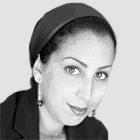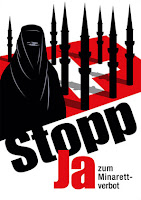The map of Islam in Greece To Vima 14.02.2010

An interesting article from the Sunday edition of the Greek newspaper, TO VIMA, traces the changes that one of the very few European societies that had a historical experience of coexistence with Islam is undergoing. Although Eastern Orthodox Christians living in the southern Balkans have lived side by side with Ottoman Muslims for over five centuries, today, Greeks are much more sceptical about the presence of Muslims and Islam in the country. According to some sources, there may be 830,000 to 1,000,000 Muslim residents and citizens in Greece. Whereas, in the past, the minority (Muslim citizens of Greece exempted from the Lausanne Treaty population exchange) were concentrated in Northeastern Greece, today the bulk of Greece's Muslims (primarily migrants from various Muslim countries, but also an increasing number of converts) live throughout the country but primarily in the Athens conurbation. Since the establishment of the Greek state in the 1830s, Orthodox Chr...



